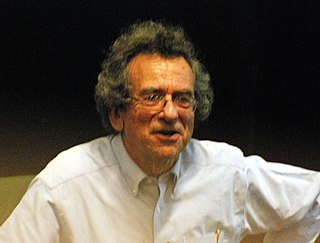A Quote by Heinrich Rohrer
Scientific fraud, plagiarism, and ghost writing are increasingly being reported in the news media, creating the impression that misconduct has become a widespread and omnipresent evil in scientific research.
Related Quotes
The technological overflow from scientific research has brought scientific research this bad name about carrying an irresponsibility and an alienation from God - because scientific research has led to things like the atom bomb, it's led to problems with depletion of ozone in the Earth's atmosphere, or at least it's revealed those problems.
The great scientific achievements are research programmes which can be evaluated in terms of progressive and degenerative problemshifts; and scientific revolutions consist of one research programme superceding (overtaking in progress) another. This methodology offers a new rational reconstruction of science.
Media bias in editorials and columns is one thing. Media fraud in reporting 'facts' in news stories is something else. ...The issue is not what various journalists or news organizations' editorial views are. The issue is the transformation of news reporting into ideological spin, along with self-serving taboos and outright fraud.
The responsibility for the creation of new scientific knowledge - and for most of its application - rests on that small body of men and women who understand the fundamental laws of nature and are skilled in the techniques of scientific research. We shall have rapid or slow advance on any scientific frontier depending on the number of highly qualified and trained scientists exploring it.
Over the past fifty years or so, scientists have allowed the conventions of expression available to them to become entirely too confining, too confining. The insistence on bland impersonality and the widespread indifference to anything like the display of a unique human author in scientific exposition, have transformed the reading of most scientific papers into an act of tedious drudgery.
The new advocates of ID [Intelligent Design] ask that their ideas be judged by scientific, not religious, criteria. OK, let's see how well ID stacks up as a scientific alternative to Darwinism. To gauge how well ID is doing as a platform for scientific research, I logged into the best database of the biological literature. A search for keyword ''evolution'' yielded 24,000 hits in the last decade. A search for ''intelligent design'' yielded not a single piece of research. Evolution by natural selection remains the basis of every successful biological research program.
As time passed I became an avid reader of popular scientific books, wanting to know as much as I could about the world in which I lived. Gradually I began to see a pattern of nonsense in much scientific writing. Scientific explanations given regarding the origins or functioning of various phenomena simply didn't make sense.
It is ironic that the scientific facts throw Darwin out, but leave William Paley, a figure of fun to the scientific world for more than a century, still in the tournament with a chance of being the ultimate winner... Indeed, such a theory is so obvious that one wonders why it is not widely accepted as being self-evident. The reasons are psychological rather than scientific.



































